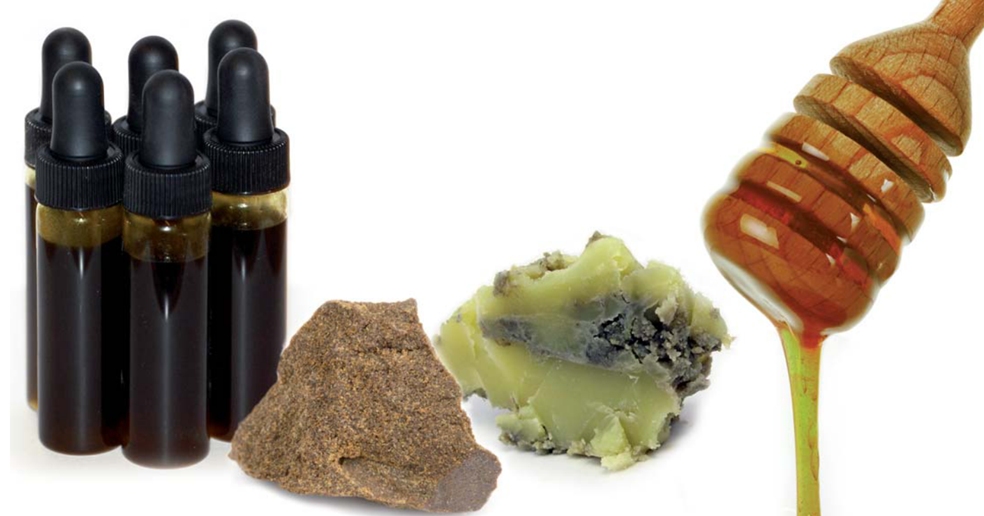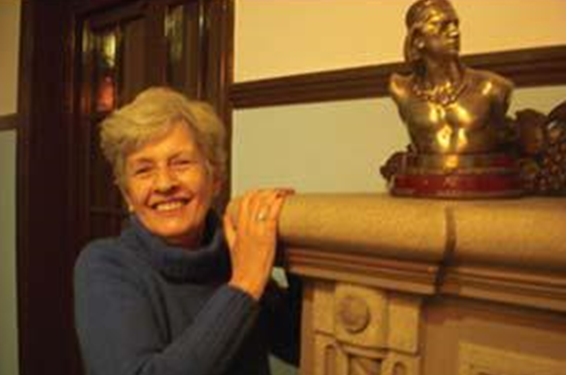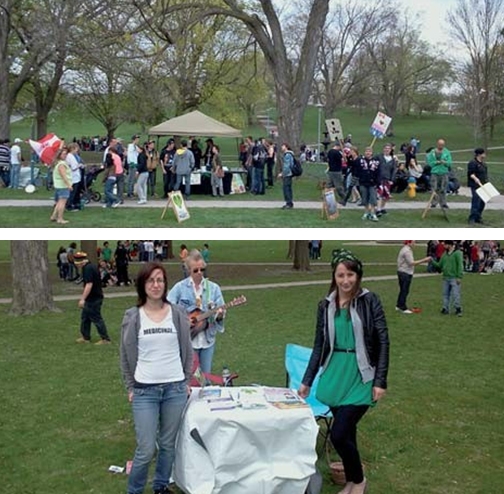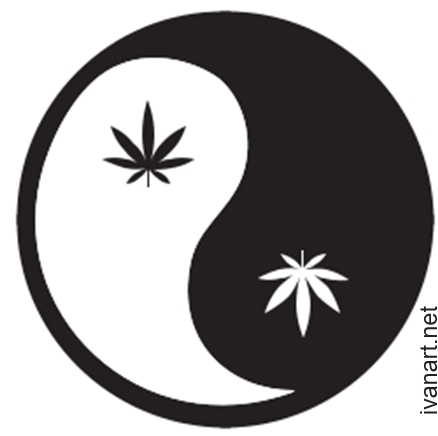
Owen’s Case & Legalizing Derivatives
By Ryan Fink
Last April, a decision came down from the Supreme Court of British Columbia that changed the MMAR to allow patients to extract cannabinoids from cannabis, or more plainly put, to make and possess extracts like pot butter, hash, tincture, and honey oil.
Prior to this decision, patients with authorizations to possess cannabis (ATPs) from Health Canada who were, say, making medicinal cookies, were breaking a rather serious law – one carrying heavy penalties more tradition-ally associated with drugs like heroin and cocaine. But people who smoked or vaped their herb plain were fine. While this common-sense decision presently only affects people in B.C., it sets a precedent for future cases in all provinces, and will become binding if the BC Court of Appeal decides to uphold it.
This change in the law, like every other change that has shaped Canadian cannabis regulations to date, has been the result of a nugget of fate, a lot of hard work, and, of course – legal fees and the slow-time of the courthouse. The events of this occurrence center around a man named Owen Smith, a longtime employee of the former Cannabis Buyers’ Club of Canada in Victoria (now called the Victoria Cannabis Buyer’s Club, more on this change later). Here’s the story of how he, with the help of friends, allies, and a damn fine lawyer, effected this change in the MMAR.
Owen has been involved with the medical movement in BC for over 10 years now. He was studying humanities at Camosun College in Victoria back in 2001 when he first encountered Ted Smith (no relation) at one of the school’s weekly Hempology 101 Club meetings. Hempology 101 is a Victoria-based nonprofit organization that coordi-nates student groups at various Canadian universities, promotes anti-prohibition rallies and conferences, and publishes a quarterly newsletter. Owen eventually became more involved with the group, using his design skills to make posters for all kinds of Hempology 101 events and then putting them up around town. Eventually, he approached Ted about learning how to bake medicine, wondering about the possibility of working for the Cannabis Buyers’ Club of Canada, Ted’s other project. But before this could happen, he wound up relocating to the Sunshine Coast to investigate a more rural lifestyle, and worked as a gardener and landscaper through the area. That is, until he returned to Victoria for a visit in 2008 and stopped by the CBC of C headquarters to say hi to his old friend.
As it turned out, the CBC of C was then in the market for a new baker, and Ted remembered what Owen had said to him years before. Sticky hands were soon shaken, and Owen began working for the club then and there, making leaf into everything from edibles like cookies and lozenges, to pills, massage oils, and salves of various concoction. He excelled, and poured his glad heart into every bite of med-icine he made.
But one trick of operating a medical dispensary is where to house the kitchen, given most landlords’ reluctance to rent commercial properties to businesses that openly break the law. In the CBC of C’s youth, this wasn’t so much an issue, as the volume of edibles sold was much less, and the product selection was much smaller. Back in the early 2000’s, one baker working about 5 days a week at a casual (to put it mildly) pace was more than enough to meet the needs of the membership. This meant that the bakery could be easily contained and keep a low profile in a small apartment kitchen.
Then time passed and the membership grew, as did their appetite for topical and edible alternatives to smoke. The bakery became much busier, but because of the unfortu-nate legal status of medicinal cannabis, it was still being run from an apartment. And Owen was rocking it, crank-ing out cookies and such to meet the rising demand. This went well for some time, but eventually that little twist of fate came around, and everything changed.
As it happens, Owen moonlights as a DJ (some of you can see where this is going), spinning psychedelic dance beats at parties around the coast. Being an industrious fellow, he used to spend his work nights practicing sets for the week-end, and would then take these practice sessions to work so that he could review them while he baked. Anyone who really appreciates good electronic music will tell you that it sounds better with the volume at 11, and doing due duty to the audiophiles who filled the local dance floors every weekend, Owen scrutinized his work at the proper level, thinking nothing of it since he worked during the after-noon. Apparently, one day a neighbor down the hall had enough of Owen’s bass rocking the walls, and rather than knocking on the door to ask for quiet that Owen would have gladly given, he called the police.
At least this is what the police said at the time. Their actu-al report didn’t mention the noise at all, citing smell as the cause of the complaint. This makes more sense, seeing that you’d pretty much have to be throttling a jet engine indoors for the police to respond to a residential noise complaint in the middle of the afternoon.
But for whatever reason, they came. Because Owen was not the resident tenant, they claimed to need to check the suite to be sure that everything was OK. Of course, every-thing was OK, but for a few incriminating items – myste-rious jars of green oil and butter. What’s more, the room was filled with the enticing aroma of ginger cookies bak-ing, and there was a rolling tray on the kitchen table over-flowing with about a half gram of the infamous herb. It must have smelled like the bust of the century. The details of the next few hours are many and tedious, needless to say that much was learned of police protocol in these kinds of situations, and Owen was left facing an uncertain future as he was released from custody at around 11:30 that night.
The resulting charges were for possession of THC for the purposes of trafficking, which is, as I mentioned earlier, a much more serious crime than possession of cannabis for the purposes of trafficking. It struck everyone involved how ridiculous this charge was, given that smoking is by far the least healthy, least efficient, and least effective method of consumption in most cases. The medical ben-efits of eating cannabis are much greater and longer last-ing than those of the smoke, and smokable extracts like hash are more healthy because intake is minimized to the cannabinoids that are responsible for medicinal effects. What’s more, the MMAR state that ATPs apply only to dried cannabis. Owen and his colleagues at the CBC of C took this as an opportunity to change the rules. Lawyer and anti-prohibitionist Kirk Tousaw was hired, and a con-stitutional challenge was launched.
The judge, Justice Robert Johnston of the BC Supreme Court, ordered that this challenge take place in a voir dire, or ‘trial within a trial’, that was scheduled over late win-ter and early spring of this year. The defence centered around the testimony of expert witness, Dr. David Pate, who argued the obvious point that it is largely the trichomes on the surface of the plant that contain the medi-cine the patient is looking for, while the plant material itself has little medicinal value and is actually slightly harmful when smoked.
Justice Johnson cited 5 pages of evidence from Dr. Pate in his decision. The prosecution’s expert witness was an employee of Health Canada named Dr. Abramovici whose testimony centered around the idea that edible cannabis and cannabis concentrates are more dangerous because they are more potent, and therefore more likely to cause the adverse side effect known to health officials as ‘eupho-ria’. This might have been all good for the Crown, if Mr. Tousaw hadn’t pointed out in his cross-examination that Dr. Abromovici’s conclusions in his affidavit had been dic-tated to him by his manager at Health Canada, thereby ruining his credibility in front of the judge.
Intelligence and sensibility won the day, and on April 13th Justice Johnston ruled that the MMAR be changed to allow those with ATPs to produce and possess extractions in addition to simply dried cannabis. Owen and friends couldn’t have improved on the judge’s decision, it was exactly what they had fought for. However, after amending the MMAR, Justice Johnston concluded that Owen should still proceed to a jury trial regarding his possession and trafficking charges. Owen had hoped that these would be thrown out as well, but Justice Johnston had other plans. While he did not cite his reasons directly, we can speculate as to why he thought a jury trial should proceed.
First, he cited the fact that many members of the CBC of C don’t have ATPs from Health Canada. Given how diffi-cult, if not impossible, it is for most patients to get a doc-tor to actually sign the MMAR paperwork, Owen’s defence had previously been hoping to cite the R v Mernaugh decision to this end, as the VCBC’s mandate is to accept anyone who has been diagnosed with an incur-able physical disability or disease, which is essentially the same as the criteria defined by Health Canada. Justice Taliano, who heard Mernaugh’s case, eventually found the entire MMAR in violation of section 7 of the Canadian Charter of Rights and Freedoms. Unfortunately the appeal to this decision has still not been handed down, and so it didn’t factor into Justice Johnston’s ruling.
Secondly, he stated that, “In this case, I have found there has been a violation of liberty and security rights of the medical marijuana users protected by s. 7 [of the Charter of Rights and Freedoms], as well as Mr. Smith’s liberty right. However, I find that society’s interests in having the charges against Mr. Smith tried on their merits outweigh the violation of Mr. Smith’s liberty right, at least sufficient-ly to deny him the judicial stay he seeks.”
It’s not exactly clear what was meant by this, but Owen and Mr. Tousaw hope it means that Justice Johnston, who voiced his concern over the inadequacy of the MMAR throughout the hearings of the voir dire, believes that the jury trial will provide a valuable forum for more substan-tial precedents to be set. It seems unlikely that a jury com-prised of thoughtful British Columbians, 75% of whom support legalization according to recent polls, would send a man to prison for making medicine and doing the com-munity an invaluable service in the process, especially in light of how the voir dire went, and certainly in light of the results of R. v. Mernaugh. This jury trial is set to begin in February 2013, and the outcome is sure to be noteworthy.
Meanwhile, back at the club, it turned out that this voir dire marked the beginning of a series of radical transfor-mations in the group’s organization and daily operation. There was a great deal of media coverage surrounding Justice Johnston’s decision, and this had two notable side-effects. The first was that the membership began to grow at an unprecedented rate, and sales of topical and edible products grew with it. Secondly and more importantly, mention was made of the CBC of C’s respectable financial situation during the proceedings of the trial, which the police decided to bring to the attention of the Canada Revenue Agency, who promptly paid us a visit.
The story of how this visit went, and all the hard work that has gone into cooperating with the CRA, is another article in itself, but the result has been that Ted has sold the CBC of C to a new nonprofit organization, the Victoria Cannabis Buyers Club (VCBC) – owned by the membership and governed by a board of directors. The organization now charges and remits HST and payroll deductions. While this unfortunately means that members now need to pay higher than street prices for their medi-cine, business has continued steady growth, and all involved hope that the approximately $25,000 in HST revenue being generated by the organization every month will be enough to turn a few heads in the economy-mind-ed Conservative government. All of this in spite of the VCBC’s belief that HST should not be applied to medici-nal cannabis products, a point that is currently being made in the courts by other organizations.
And so, with this forward motion in mind, Owen and his colleagues at the VCBC are looking to next February with optimism and excitement, taking the time until then to continue legitimating their business and preparing their case. Dr. Pate is expected to be Owen’s expert witness again in the winter, and the club will have several members testify before the jury as to the medicinal value of the food and skin products that Owen was arrested for making.
Since the events of 2009, Owen has stopped baking and now works full-time at the VCBC headquarters as a med-ical distributor, researcher, journalist, activist, and media specialist, while other newer members of the team carry on in the kitchen. Also, his renown as a DJ continues to grow, and he just released a new album of original compositions under his moniker, Rize Ohm (shameless plug because he deserves it: RizeOhm.bandcamp.com). It seems like there’s a bright future ahead of this law-changer.
And I believe the same can be said for the futures of all those involved in the medical cannabis movement – grow-ers, distributors, and users alike. If Owen ever felt like Don Quixote – gearing up to tilt at giants looming in the distance – a thousand others in situations like his have felt the same. Now imagine a thousand such bedraggled knights, all charging the giants in unison, rushing the hori-zon to defend honour, truth, and freedom. Imagine their surprise when the narrowing distance reveals to them that the towering forms are but windmills – mindless machines, like certain ineffective bureaucracies. We are now approaching that horizon, that truth.








